A list by Syd Fablo and Bruno Bickleby
Introduction
Born: February 26, 1932, Kingsland, AR, United States
Died: September 12, 2003, Nashville, TN, United States
Johnny Cash and Tennessee Two – “Hey, Porter!” / “Cry! Cry! Cry!” (1955) [Single]
Recorded: May 1955, Sun Studios, Memphis, TN
Personnel: T2 (LP, MG)
Producer(s): Sam Phillips
Tier: ¢
Key Track(s): “Hey, Porter!”
Review: While still working as a salesman after having finished his tour with the United States Air Force, Cash doggedly sought an audition with Sam Phillips of Sun Records. Initially Cash presented himself as a gospel singer, and then as a country one. Phillips wasn’t interested in either. Eventually, though, Cash convinced Phillips to hear an audition. Cash played some covers and then his own composition “Hey, Porter!” When Cash came back and thought he was recording merely an audition demo, Phillips said he would release that recording of “Hey, Porter!” as a single, but asked Cash to come back with a love song they could record for the flip side of the single, “a real weeper” in Phillips’ words. So Cash came back a couple of weeks later with “Cry! Cry! Cry!” In 1955, “Cry! Cry! Cry!” became Cash’s first hit on the country charts — it would be a few years before he had success on the pop charts. It had taken more than thirty takes to get the recording down, with his band The Tennessee Two (Luther Perkins on guitar and Marshall Grant on bass) eventually settling on a very simple boom-chicka-boom rhythm as about the only thing they could play effectively. The rest, was history, so to speak. — Syd
Johnny Cash With His Hot and Blue Guitar! (1957)
Recorded: May and July 30, 1955; April 2 and unknown 1956; and Summer and August 1957; Sun Studios, Memphis, TN
Personnel: T2 (LP, MG)
Producer(s): Sam Phillips
Tier: $
Key Track(s): “I Walk the Line,” “Folsom Prison Blues,” “The Wreck of the Old ’97,” “I Was There When It Happened”
Review: Johnny Cash was an artist who sort of arrived with all his major talents intact right from the beginning. His music evolved and changed over time, for sure. But his velvety bass-baritone voice and endearing brand of time-worn country wisdom are all in full effect on this, his first full-length LP. Being the early days of the LP format, this material wasn’t strictly recorded for the LP and many of these songs were previously released as singles. They were recorded between May 1955 and August of 1957. Cash plays with guitarist Luther Perkins and bassist Marshall Grant, the original Tennessee Two. It’s a very spare and minimalist sound, which lets Cash’s inimitable voice take the spotlight. Perkins was a guitarist of pretty limited means. He really couldn’t play much more than a simple boom-chicka-boom rhythm, without any complex solos to speak of. He does a lot of the typical country strumming, alternating between low notes and high notes in the style of Maybelle Carter. But it’s iconic. Perkins was the perfect guitarist to support Cash. His playing has a little bit of rock influence, but that just provides a little counterpoint to Cash’s traditional country leanings. The other key aspect of the sound of this record is the reverb. Like much of the music recorded at the legendary Sun Studios in Memphis Tennessee, the reverb drenches the music in seductive, politely dangerous charisma.
The songs here are great. They include Cash’s first hit, “Cry! Cry! Cry!,” a Hank Williams tune, “(I Heard That) Lonesome Whistle,” and a song probably written by Charles Noell about a 1902 train wreck, “The Wreck of the Old ’97.” “I Walk the Line” was a song Cash liked to say was his best, and it’s hard to argue. Another of his most famous compositions, “Folsom Prison Blues,” was written after Cash saw the film Inside the Walls of Folsom Prison while in the U.S. Air Force stationed in Germany. He pretty liberally borrowed the melody and lyrical structure of Gordon Jenkins‘ “Crescent City Blues” (part of “The Second Dream – The Conductor” from Gordon Jenkins’ Seven Dreams (A Musical Fantasy)), and paid Jenkins in the 1970s for what he borrowed. He also adapted the famous line “I shot a man in Reno/just to watch him die” from Jimmie Rodgers‘ “Blue Yodel (T for Texas)”: “I’m gonna shoot poor Thelma/just to see her jump and fall.” But Cash’s song is superior to any of its reference points. “I Was There When It Happened” is a country gospel number. Cash wanted to perform gospel music from the beginning, but opportunities were limited to record it in the early days. It would remain a factor in his music for his entire career.
What made Cash so special is damn hard to put your finger on. He sang about a lot of the ordinary aspects of life: work, travel, liberty, death, religion. He did do romance and love songs, but a lot less than many other famous singers. When he did do them, they weren’t anything like the hyper-sexualized fare that came to dominate rock music. There was a connection to the “old weird America” that Greil Marcus described with respect to Harry Smith‘s iconic Anthology of American Folk Music. Cash’s songwriting, as well as his song selection, tended to emphasize an “ordinary” individual’s reaction to extreme situations: being confined to prison, natural disasters, threats to making a living, and so on. He confronted these situations with varied amounts of humor, lament, determination, dignity and enthusiasm. Yeah, Cash could take these situations and make them fun and funny. But that’s just the way his music reflected how human beings sometimes deal with stress and tragedy, and what they aspire to in the best of times.
Although this album sounds unmistakably of its time, it doesn’t really sound “dated” at all, in the sense of losing its appeal to later audiences. This is one of the essential Cash albums. There is not a bum track on the whole thing. — Syd
Sings: The Songs That Made Him Famous (1958)
Recorded: April 2 and May 8, 1956; April 4, July-August and November 1957; and April-May, May 15 and July 10, 1958, Sun Studios, Memphis, TN
Personnel: LP, MG
Producer(s): Sam Phillips, Jack Clement
Tier: ¢
Key Track(s): “Guess Things Happen That Way,” “Big River”
Review: Cash’s debut was a classic. After that, though, Sun tried to change things up a bit. On this next album, an attempt was made to fashion him as something more of a teen idol and less rural. Producer “Cowboy” Jack Clement was responsible for this in large part. Here, the new approach works only fitfully at best — though it was quite popular at the time. Rather than exclusively folk and country numbers, there are a lot of melodramatic romance songs here, epitomized by Clement’s “Ballad of a Teenage Queen.” There are some rubber-stamp 50s pop backing vocals thrown in too that are less than ideal, at least with a limited budget at Sun Records these new approaches seem undeveloped. That isn’t too surprising given that Cash had already signed to a new record label and recorded some of this material as contract fulfillment. Fortunately, though, most of this is still the same reverb-laden country with a sure and steady rock beat that made the debut such a classic. However, be warned that a number of songs on here are duplicates of songs previously released on Cash’s debut album. For those who listened to and liked the debut, a slightly better follow-up choice may be the Sun compilation Now Here’s Johnny Cash. — Syd
Hymns by Johnny Cash (1959)
Recorded: July 24, 1958 to August 13, 1958
Personnel: T2 (LP, MG), TJ
Producer(s): Don Law
Tier: ¢
Key Track(s): “Swing Low, Sweet Chariot”
Review: Cash loved gospel music. From the very beginning of his career he wanted to be a gospel singer, though naturally his record labels probably cringed at the though of devoting his talent to such less-than-popular efforts. When Cash signed with major-label Columbia in the late 1950s, he had their assurances he could make a gospel album (and a concept album). He proved up to the task. With pretty simple reverb-laden sound just like he had used throughout most of the 50s, plus a few backing vocals from The Jordanaires (who worked extensively in Nashville, and with Elvis), this is a pretty consistent effort. Although Cash would go on to make a lot of gospel albums, this remains one of his very best. It bears mentioning that many of his gospel albums are downright terrible, but that shouldn’t scare anyone away from this one. Hymns By Johnny Cash is enjoyable even for listeners uninterested in the religious content. — Syd
Songs of Our Soil (1959)
Recorded: July 24, 1958 to March 12, 1959
Personnel: T2 (LP, MG), TJ
Producer(s): Don Law
Tier: ¢
Key Track(s): “Five Feet High and Rising”
Review: Songs of Our Soil marked an important transition point in developing the sound of most of Johnny Cash’s albums of the decade that followed. The guitar is less loud than before, and things like a piano feature on occasion too. Backing vocals by The Jordanaires are frequent. Cash’s voice is a little more distinct and prominent. Reverb and twang are quietly diminished. The result is something a little more folk than country sounding, with a sophistication palatable to pop audiences. Actually, this is put together a bit like a small-scale Nashville version of a great Los Angeles “Wrecking Crew” pop album from the 1960s. When it comes to the songs, a lot deal with death, but more importantly they conjure up Americana themes a lot like the view of pre-industrial America later featured in the film Days of Heaven. Cash avoids too many romance songs and manages to focus on farm and country life without any hint of rural naiveté. On the whole this works quite well. Most listeners will probably want to head to other Cash recordings first, and come back to this if they like his early 60s material to see how he arrived there. This one is still pretty welcoming, suitable for repeat listens. — Syd
Cocaine Blues: Stardom, Concept Albums, Prison Concerts, TV Show; 1960-1971
Cash established himself at Columbia Records at the end of the 50s, where he would remain for decades to come. His popularity rose, but just as his career was starting to fade he would find his biggest commercial successes with a pair of live prison albums. He began taking increasing amounts of amphetamines and other drugs in the Sixties to keep up a brisk touring schedule. But increasing drug use led to problems. In June of 1965 his truck caught fire and caused a forest fire in Los Padres National Forest in California. His behavior was erratic, unreliable and a bit crazy. Chronic laryngitis was brought on by pills and booze. He divorced his first wife in 1966 and moved from California to Tennessee. He curbed his most serious drug problems in late 1967, though he continued to use various drugs on and off into the future. In 1968 he married June Carter. Then, in late 1968, original Tennessee Two guitarist Luther Perkins died as a result of a fire in his home, likely started when Perkins fell asleep with a lit cigarette in hand. Cash took on Carl Perkins as guitarist in his working band, who gave Cash’s music a bit more hefty rock ‘n’ roll edge for a time. In 1969 Cash began his own TV show on the ABC network, The Johnny Cash Show, which resembled variety shows of the day, complete with regular musical performances by Cash and guests.
Now, There Was a Song! Memories From the Past (1960)
Recorded: 1960
Personnel: T2 (LP, MG)
Producer(s): Don Law, Frank Jones
Tier: $
Key Track(s): “Transfusion Blues,” “I’m So Lonesome I Could Cry,” “Why Do You Punish Me (For Loving You),” “Seasons of My Heart”
Review: When Cash moved to Columbia Records, his first few albums continued where he had left off at Sun Records. There was a mixture of teen-idol material, now having more elaborate production, with gospel and folk. These early Columbia albums were produced by Don Law. Now, There Was a Song! featured the addition of producer Frank Jones. Law and Jones would continue to work with Cash for most of the decade. Together, the three created a series of concept albums — though the “concept” is more stylistic than thematic here.
Most of Cash’s music revolved around his trademark boom-chicka-boom rhythm and relatively simple instrumentation, with rock ‘n roll influences that separated it from most commercial country music. Now, There Was a Song! paired Cash and The Tennessee Two with a fiddle, pedal steel guitar, and piano, with more conventional honky tonk settings and rhythms. The thing is, it works! The covers are perfectly selected. Cash sounds like he loves these songs and is thrilled to be performing them. He was on top of the world at this point in his career. He was enjoying plenty of success, and drugs and the grind of touring had yet to take their tolls on him. Sure, this one clocks in at barely over 26 minutes, but it’s nice to have nothing but great tunes rather than a set bogged down by a lot of inferior filler. This is one of the man’s most consistently good albums, even if paradoxically it’s probably least representative of his trademark sound and somewhat like a lot of other country recordings of the 40s and 50s. — Syd
The Sound of Johnny Cash (1962)
Recorded: April 28, 1961 to February 12, 1962
Personnel: T2 (LP, MG)
Producer(s): Don Law, Frank Jones
Tier: ¢
Key Track(s): “Mr. Lonesome,” “In Them Old Cottonfields Back Home,” “Delia,” “You Won’t Have Far to Go”
Review: After a few albums that tried to test the limits of his stylistic range and abilities Cash returned to his tried and true folk-country sound with The Sound of Johnny Cash. While he is not trying to break any new ground, and there is not any standout single included, this remains one of his better early/middle period albums. It is a pleasantly mellow and likeable album that aligns the material and performances with Cash’s disposition as a singer raised on a farm but with some years of national touring behind him. He sort of honors his roots, yet also aims for something that has a touch of urban sophistication that stretches beyond those roots. By 1962 Cash’s voice had changed a bit, deepening and coarsening as a result of a steady touring performance schedule that left him with problems of chronic hoarseness. Those troubles with his vocal chords don’t surface on this album, but rather add a layer of complexity — turmoil even — just under the surface. Guitarist Luther Perkins is a crucial presence. As the music pushes toward urban sophistication, Perkins’ iconic boom-chicka-boom guitar picking is this primitive ballast that refuses to dissolve into the airy, consonant vocal harmonies. That guitar sound is also an ideal foil for Cash’s vocal phrasing, allowing Cash’s singing to occupy a middle ground that moves confidently into the era of post-WWII prosperity without forgetting the grit, hard work and determination of a rural childhood. Cash’s background is honored while still being compartmentalized as a stepping stone to a role as an musical ambassador of sorts. — Syd
“Ring of Fire” / “I’d Still Be There” (1963) [Single]
Recorded: March 25, 1963
Personnel: MC, CF, ??
Producer(s): Don Law
Tier: $
Key Track(s): “Ring of Fire”
Review: One of Cash’s most famous recordings (he was second to record it, after Anita Carter), one covered by all sorts of bands and played on jukeboxes the world over to this day, “Ring of Fire” is a deserved classic. The song employs a mariachi band horn section, a device that would be reused for a number of other recordings (“The Matador” / “Still in Town,” “It Ain’t Me Babe” / “Time and Time Again,” “Understand Your Man” / “Dark as a Dungeon”). It’s at once like a lot of other Cash recordings of the early-to-mid Sixties, but it’s also catchier than most with a chorus ripe for sing-alongs. It’s hard to point to anything about the song in particular that makes it so great, but it just resonates with so many listeners that there’s perhaps no need to over-analyze it. — Syd
I Walk the Line (1964)
Recorded: June 13, 1963 to March 5, 1964
Personnel: LP, MG, FH, NB, CF
Producer(s): Don Law, Frank Jones
Tier: ¢
Key Track(s): “Understand Your Man,” “Troublesome Waters,” “Bad News,” “I Still Miss Someone”
Review: Although obviously leaning on ploys to drum up sales, the 1964 album I Walk the Line (not to be confused with the later soundtrack of the same name) ends up being a surprisingly listenable album. Two-thirds of the album is made up of re-recordings of some of Cash’s past hits — he would pull that stunt again later in his career too. But, actually, those re-recordings are all decent enough. And the new recording of “I Still Miss Someone” with female rather than male backing vocals and an entirely different rhythm actually work in favor of this version, which, surprisingly, is on par with the original recording. There are also a few choice new songs here in “Understand Your Man,” “Troublesome Waters,” and “Bad News.” Luther Perkins is still a presence although Norman Blake and other studio musicians get chances to add more virtuoso instrumental performances too. So the album goes well beyond Cash’s trademark boom-chicka-boom sound while also continuing to supply a hearty dose of it. Really, there is not a bad cut on this entire record, although redundancy of so many of the re-recordings is a drawback. In the end, this is just another solid, if unassuming, album from the prime period of Cash’s years on Columbia Records. — Syd
Bitter Tears: Ballads of the American Indian (1964)
Recorded: March 5 to June 30, 1964
Personnel: LP, MG, FH, NB, CF
Producer(s): Don Law, Frank Jones
Tier: ¢
Key Track(s): “As Long as the Grass Shall Grow,” “Custer,” “The Talking Leaves”
Review: Behind a lot of Johnny Cash’s work lies a firm belief in egalitarianism, the idea that every person has inherent worth and should be treated fairly and equally. There is no better example of Cash’s commitment to egalitarianism and social justice than Bitter Tears: Ballads of the American Indian. The theme of the album is the treatment of native Americans — “American Indians” would have been considered the most respectful term at the time. Songs cover topics like treaties (specifically, the Treaty of Canandaigua) between the government of European settlers and native nations in the context of recent breaches by President Kennedy (“As Long as the Grass Shall Grow”), the creation of a written language of the Cherokee by Sequoyah (“Talking Leaves”), the military service and tragic death of Ira Hayes (“The Ballad of Ira Hayes”), and a humorous jab at the crushing defeat of an invading military force led by George Armstrong Custer by allied Native tribes at the Battle of Little Big Horn in 1876 (“Custer”). It was highly unusual for celebrities to highlight native American issues in 1964, though the Freedom Movement or Civil Rights Movement focusing mostly on African-Americans was still underway. Cash worked closely with Peter La Farge on the album, who wrote five of the eight songs but does not appear on the recordings. La Farge was a fixture of the Greenwich Village folk scene in the early 1960s. He was a performer of very limited means, but Cash liked him personally. The musical tone of the album is similar to Cash’s other early 60s albums, with rather minimal instrumentation in a folk-like setting. He tends toward a very respectful approach to the music, making the topics seem dignified and important. Bitter Tears is somewhat divisive among fans. For some, it represents the epitome of Cash’s integrity, a testament to his image as something of a crusader for noble causes. To others, this is a contrived, heavy-handed political statement lacking in purely musical merits. — Syd
Orange Blossom Special (1965)
Recorded: August 27 and December 17-20, 1964, Nashville, TN
Personnel: LP, MG, FH, NB, JC
Producer(s): Don Law, Frank Jones
Tier: ¢
Key Track(s): “It Ain’t Me Babe,” “When It’s Springtime in Alaska (It’s Forty Below)”
Review: With Orange Blossom Special Cash was back drawing connections to the urban folk movement. The instrumentation is acoustic and spare, and there’s a prominent harmonica. But unlike his first attempt at a folk-revival sound, Blood, Sweat and Tears, here he’s thrown his lot in with the new wave of more modern folk. To that end, the album boasts no less than three songs by the iconoclastic young folkie Bob Dylan. Cash is clearly connecting with this material, though he maintains an offhand, intimate quality in the performances. It really helps that this album allows space for Cash to present an eclectic batch of songs. Many of them would stick with him the rest of his career. This is such a pleasant, unassuming little album that touches on so many classic themes of love, god, murder and liberty that run through Cash’s entire body of work that fans may find themselves coming back to this one more than most. It’s a little uneven, perhaps, but still among the man’s best studio albums. — Syd
Sings the Ballads of the True West (1965)
Recorded: August 14, 1959, Nashville, TN; March 10-13, 15, 18, 19, 23 and April 26, 1965, Nashville, TN.
Personnel: LP, MG, FH, NB, CC, MC, CF, SB
Producer(s): Don Law, Frank Jones
Tier: ¢
Key Track(s): “The Road to Kaintuck”
Review: Listening to Johnny Cash’s double-LP concept album Sings the Ballads of the True West, it’s hard not to think of Marty Robbins‘ legendary album Gunfighter Ballads and Trail Songs. Both are thematically focused on the American “wild west” of the late 19th Century. Cash made attempts to research the era, and locate suitable material. But like Robbins, Cash ends up with something more like a Hollywood Western than the genuine article, because he’s often backed with an orchestra or modern vocal chorus. Which is to say that any authenticity to be found here lies in the lyrics and the song selection, not so much in the performance. Still, he manages to convey something of the times. A wonderful banjo helps with that feeling. If The Man in Black developed something of an outlaw’s image, then the tales of gunfighters and hard times on display here did their part to build it in earnest. He’s definitely interested in this stuff. More than most of Cash’s concept albums, this one maintains a focus on the underlying theme quite rigorously. But like pretty much all of these concept albums, quality of the tracks varies, and some listeners probably won’t care for the between-track narrations at all.
It is worth noting that Cash’s 1960s concept albums were experiments. The full-length album was still a relatively new format in 1965, and when Sings the Ballads of the True West came out, consider these signposts: Highway 61 Revisited was still less than a month old, Rubber Soul was about three months away, and Pet Sounds was still about eight months away. Most record companies continued putting out albums made up of a couple of singles plus filler. So artists and record companies had yet to perfect the many ways in which a collection of songs could be programmed as a cohesive whole. The thematic nature of Cash’s concept albums was one attempt, and, in the context of the times, was successful, though other, later approaches surpassed it. This still ranks as a solid second-tier Cash album, with the caveat that the pronounced old-west themes might make this less amenable than others to repeated plays — you kind of have to be in the mood. Yet, the theatrics hold this one together well. As an all-around entertainment experience this is a mighty fine offering. — Syd
Johnny Cash & June Carter – Carryin’ On (1967)
Recorded: January 11 to May 22, 1967.
Personnel: JC, LP, MG, FH, CP, NB, CF
Producer(s): Don Law
Tier: ¢
Key Track(s): “Jackson,” “Fast Boat to Sydney,” “You’ll Be All Right”
Review: Not perfect, but still a blast. If Johnny and June ever made something approaching a party record, this would be it. Every song jumps out of the speakers with undeniable energy. Johnny and June sound happy to be singing together, and that feeling is infectious. Not everything here works that well, but still there is some great guitar and piano accompaniment throughout. Those listeners a little skeptical of country music might steer themselves to this, which is so much fun that the details don’t really matter. — Syd
At Folsom Prison (1968)
Recorded: January 13, 1968, Folsom Prison, Folsom, CA
Personnel: LP, MG, FH, CP, JC (+ SB on expanded reissues)
Producer(s): Bob Johnston
Tier: $
Key Track(s): “Folsom Prison Blues,” “The Long Black Veil,” “Flushed From the Bathroom of Your Heart,” “Jackson,” “Greystone Chapel”
Review:
“Daddy Sang Bass” / “He Turned the Water Into Wine” (1968) [Single]
Recorded: 1968
Personnel:
Producer(s): Bob Johnston
Tier:
Key Track(s): “Daddy Sang Bass”
Review:
At San Quentin (1969)
Recorded: February 24, 1969, San Quentin State Prison, San Quentin, CA
Personnel: MG, FH, BW, CP, JC, CF (+ SB on expanded reissues)
Producer(s): Bob Johnston
Tier: ¢
Key Track(s): “A Boy Named Sue,” “(There’ll Be) Peace in the Valley”
Review: Following the huge success of the At Folsom Prison album, Cash rather quickly returned to the same concept with At San Quentin. In the interim, Cash’s long-time guitarist Luther Perkins died in a fire. Carl Perkins, who at one time was considered a star with as much or more potential than Elvis but had fallen out of the spotlight because of a car accident and then problems with alcoholism, joined the band as his replacement. At San Quentin ended up being the highest-charting album of Cash’s entire career — his only album to reach #1 on the general pop charts. The album’s success was helped by containing his biggest hit single, “A Boy Named Sue” — his only song to reach the top ten on the general pop charts — as well as the fact that The Johnny Cash Show began airing on the ABC television network just days after the album’s release. Performed like a talking blues song and structured like a humorous story narrative, the words to “A Boy Named Sue” were written by Shel Silverstein, author of the popular children’s books Where the Sidewalk Ends and The Giving Tree, other hit country songs like Loretta Lynn‘s “One’s on the Way,” and a performer in his own right. It’s a great song, frankly, and one of the most iconic of Cash’s entire career. But aside from that fantastic song, this album as a whole can’t match the sheer magic of the first prison album, partly because the edited presentation of the concert is choppier. Listeners are advised to seek out one of the expanded reissues over the original album, because they present a more organic and inviting track sequencing. — Syd
The Johnny Cash Show (1970)
Recorded: Nashville, TN
Personnel: MG, FH, BW, CP, NB, CF, SB
Producer(s): Bob Johnston
Tier: ¢
Key Track(s): “Sunday Morning Coming Down”
Review:
Hello, I’m Johnny Cash (1970)
Recorded: February 17 to September 10, 1969
Personnel: MG, FH, BW, CP, NB, JC, CF
Producer(s): Bob Johnston
Tier: ¢
Key Track(s): “If I Were a Carpenter,” “Blistered”
Review:
Man in Black (1971)
Recorded: 1971
Personnel: MG, FH, BW, CP, NB, JC
Producer(s): Johnny Cash
Tier: ¢
Key Track(s): “You’ve Got a New Light Shining in Your Eyes,” “Man in Black,” “Orphan of the Road”
Review: Hello, I’m Johnny Cash, with it’s folksy leanings, set the tone for most of Cash’s early 1970s recordings. Man in Black took that same approach to one end of the spectrum, with a more stripped-down delivery. By way of contrast, Any Old Wind That Blows would go to the other end of the spectrum, with a more ornate delivery.
This is surely one of Cash’s best albums of the decade, but let’s get one thing out of the way. The opening song “The Preacher Said, ‘Jesus Said,'” with its grating narration by Billy Graham, is difficult to stomach. Cash’s “born again” christian sentiments get the better of him, and it certainly wouldn’t be the last time. And the presence and endorsement of the notorious white nationalist Graham is alone enough for pause here. But if you can look past that first track, the rest of this album is a lot more rewarding. Songs like “You’ve Got A New Light Shining In Your Eyes,” with its clear and bright vocals, and “Man in Black,” with its empowered tone, are quite excellent. “Orphan of the Road” is a highlight as well. Side two features some interesting songwriting from Cash. The beautifully honest “Singing in Vietnam Talking Blues” (sung to the same rhythm as “A Boy Named Sue”) is an autobiographical account of a USO performance for U.S. troops fighting in Viet Nam. He sings:
we did our best
to let ’em know that we care
for every last one of ’em
that’s over there
whether we belong over there or not
That last line — just sort of tossed in — is really the sort of thing that separates Johnny Cash from so many other country musicians. Populism runs pretty thick with a lot of country stars, but few are or were willing to even imply sympathy with protest or peace movements. But Cash was always cut from a different cloth. He sang songs about the North, about Alaska and Minnesota. He also would sing songs for prisoners, like “Dear Mrs.” here. It’s hard to pin down Johnny Cash on his politics. He always dodged those issues pretty successfully, in part because he sometimes seemed to play both sides (“Ragged Old Flag” or “The One on the Right Is on the Left” anyone?). But his ability to successfully and quite matter-of-factly broach a lot of difficult and unpopular subjects (Bitter Tears: Ballads of the American Indian) and still maintain celebrity status was impressive. — Syd
Highwayman: More Touring, Waning Popularity; 1970s to Early 1990s
Cash’s popularity peaked at the beginning of the 1970s. He remained popular after that, but his record sales began to decline. He became very religious as a “born again” christian. Considerable effort went into making the movie The Gospel Road, about Jesus, which Cash long considered one of his most important works. Drug abuse continued to be a problem. At the end of the 1970s, original Tennessee Two & Three bass player Marshall Grant was kicked out of Cash’s band in relation to Cash’s drug problems and a dispute over retirement fund embezzlement by Cash (much later the two resolved their differences). Although all of Cash’s most successful albums tended to be those made with producers who worked with Cash for extended time periods, in the 1970s and 80s he worked with a variety of different producers for short stretches and did some of his own production. The only consistent presence was producer/engineer Charlie Bragg in part of the 70s. Cash relied less on his sense of humor in the 80s. In 1982, Cash, his family and some friends were held hostage as part of a robbery of his home in Jamaica, with no injuries. His long-time association with Columbia Records ended, and he signed with Mercury Records. He also released a few recordings on Word Records and Cachet Records when Columbia wouldn’t release them. Cash also teamed up with friends to form the country supergroup The Highwaymen.
Ragged Old Flag (1974)
Recorded: 1974
Personnel: MG, FH, BW, CP
Producer(s): Johnny Cash, Charlie Bragg
Tier: ¢
Key Track(s): “Don’t Go Near the Water,” “King of the Hill,” “Southern Comfort”
Review: There was some consistency to many of Cash’s early 1970s albums, with an emphasis on folk music influences, from the slick and orchestrated to the more simple and stripped-down. Starting in the mid-Seventies, though, as Cash’s commercial successes of the previous years faded from memory, he tried out a variety of new styles. Ragged Old Flag is something of a transitional effort. There is still a lot of acoustic folk-influenced material — now taken to a highly refined state — but also a lot of bouncing honky-tonk music rich with humor and novelty gags. Producer Charlie Bragg had moved over from merely being Cash’s sound engineer, and he’s most responsible for the newer approach. Bragg would stick with Cash for a number of albums over the coming years, delivering a few more albums in that style with some very modest success. There is also a touch of the “old” Johnny Cash sound as well. It’s too bad that the clear and simple approach to recording here would be lacking in Cash’s recordings a stretch down the road. The songs here aren’t all classics, but there are some pretty good ones. Although this one tends to be overlooked, no thanks to the “patriotic” album cover and title track that aren’t representative of the album as a whole, hindsight has proven this one of Cash’s best albums of the decade. It would be twenty years before he made another album this good. — Syd
Johnny Cash and The Tennessee Three – “One Piece at a Time” / “Go on Blues” (1976) [Single]
Recorded: 1976
Personnel: T3 (BW, MG, FH), EB
Producer(s): Charlie Bragg, Don Davis
Tier: ¢
Key Track(s): “One Piece at a Time”
Review: After his TV show was canceled, sales of Cash’s recordings started to drop quickly. However, he had a brief return to the “charts” with the hit single “One Piece at a Time,” a novelty song about an auto worker assembling a car from assorted parts pilfered on the job. This would be Cash’s last song to reach the pop charts. It is a good song, and plenty of fun to hear, but Cash was starting to repeat himself somewhat (compare “City Jail” from På Österåker). — Syd
The Rambler (1977)
Recorded: 1976-1977
Personnel: MG, FH, BW, EB
Producer(s): Charlie Bragg, Jack Routh, Johnny Cash
Tier: 0
Key Track(s): “Hit the Road and Go,” “After the Ball”
Review: While not Cash’s finest moment by any means, The Rambler is his most interesting and unique album of the late 70s. The basic premise is that Cash plays The Rambler, a sort of “wise old man” character driving across the country. Along the way he picks up The Fisherman, who is something of a reluctant hitchhiker (the Rambler has to persuade him to come along), and The Cowgirl, who claims to have killed her “old man” and talks about cheating a pinball machine — which only cost a nickel — to play for over two hours. The dialogue/skits are woven together with songs that pick up on themes and events mentioned in the skits. It fits somewhere in the continuum of uniquely American road travelogues, like Woody Guthrie‘s “Bound for Glory,” Jack Kerouac‘s “On the Road”, Monte Hellman‘s cult film Two-Lane Blacktop, and a host of others. Cash does okay with his foray into the genre. Even though the album is theatrical and fictional, the format allows him to really run with a lot of themes that have coursed through his work. The topics seem meaningful to him and his treatments pretty genuine. The very idea of traveling around the country aimlessly is pretty radical. It seems to be premised on the idea that people aren’t entirely independent, and are unable to completely control their own destiny, because of ties to “the system”. But, maybe, traveling long and far enough, some chance will arise to kind of break free and remake your life.
If you come to The Rambler just looking for tunes, you’ll be disappointed. Only about 57% of the album is actually made up of songs, proper. Frankly, none of these songs are that memorable, individually. Taken as a whole, though, this album is a nice experience. There aren’t many albums — if any — quite like it. — Syd
I Would Like to See You Again (1978)
Recorded: July 6, 1976 to October 4, 1977
Personnel: MG, FH, BW, EB, TJ
Producer(s): Larry Butler
Tier: 0
Key Track(s): “I Don’t Think I Could Take You Back Again,” “Abner Brown”
Review:
Bootleg Vol. III: Live Around the World (2011) [Compilation]
Recorded: 1956, Dallas, TX; 1962, New River Ranch, Rising Sun, MD; July 26, 1964, Newport Folk Festival, Newport, RI; January 1969, Annex 14 NCO Club, Long Binh, Vietnam; April 17, 1970, White House, Washington, DC; October 3, 1972, Österåker Prison, Sweden; 1973, CBS Records Convention, Nashville, TN; 1976, The Carter Fold, Hiltons, VA; October 2, 1976, The Wheeling Jamboree, Wheeling, WV; December 10, 1979, Exit Inn, Nashville, TN
Personnel: LP, MG, FH, BW, CP, JC, CF, SB, CC, EB
Producer(s): Gregg Geller, Steve Berkowitz
Tier: 0
Key Track(s): “Don’t Think Twice, It’s All Right,” “Wreck of the Old ’97 [Vietnam],” “Tennessee Flat Top Box,” “Remember the Alamo,” “Jackson,” “Were You There (When They Crucified My Lord),” “Daddy Sang Bass [White House]”
Review: A collection of live recordings spanning 1956 to 1979. Some of this material was released before, but most of it is new to this collection. Although the recording conditions aren’t always ideal, the vast majority of this was recorded adequately. Only a few tracks at the end of the second disc recorded at the Carter Fold and the Exit Inn deserve to be considered “bootleg” quality. It’s probably the case that this is going to appeal mostly to die-hard Cash fans, but for them there are some real treats. There is a 1969 USO performance in Vietnam to an audience of enthusiastic soldiers that is pretty smoking. It is the show that inspired Cash to write the song “Singing in Vietnam Talking Blues” from Man in Black. He performed despite having pneumonia, and relapsed into taking amphetamines. Those recordings belong in the same conversation as Cash’s legendary 1960s prison concert albums. Also of note is the appearance at the White House on April 17, 1970, where President Nixon and his staff requested certain songs and Cash famously said no for “Welfare Cadillac” and “Okie from Muskogee” (but he did do “A Boy Named Sue” as requested). — Syd
The Baron (1981)
Recorded: September 1980, March 1981, CBS Studios, Nashville, TN
Personnel: MS, TJ
Producer(s): Billy Sherrill
Tier: 0
Key Track(s): “The Baron”
Review: Though hardly one of Cash’s best albums, The Baron is highly illuminating in contextualizing Johnny Cash’s left-populist New Deal politics and how the ups and downs of his career were influenced by larger historical trends. This album more or less perfectly epitomizes historian Jefferson Cowie‘s thesis in the book Stayin’ Alive: The 1970s and the Last Days of the Working Class (2010), which drew from Christopher Lasch‘s The Culture of Narcissism (1978) and Richard Sennett & Jonathan Cobb’s The Hidden Injuries of Class (1973) to posit that individualism and breaking away from social constraints were increasingly portrayed as desirable in mass media. As the so-called “neoliberal” era was gaining ascendancy in the Carter/Reagan/Thatcher era, Cash was clinging to the New Deal coalition, which was crumbling all around and taking down with it the political clout of the (mostly white) working class. The Baron amounts to a somewhat effete and ineffectual defense of the New Deal, which fails in spite of its lazy yet heartfelt and well-intentioned moral compass. Most of the songs extol social institutions — like the nuclear family — against individual “escape” from those social institutions. And the rich production by Billy Sherrill is late-era “countrypolitan,” a style that had already fallen from favor years ago. The title track is a kind of twist on Kenny Rogers‘ somewhat recent hit “The Gambler,” though telling the story of a pool shark reconnecting with a long-lost son rather than a card shark triumphing as an individual (against a backdrop alluding to casino capitalism). It was not until the early 1990s that Cash would/could revamp his image to present himself as an outsider riding in to challenge the political and economic establishment of neoliberalism, and that was with a stripped down, stark, yet virile and slightly menacing image that bore little to no resemblance to the sound of The Baron. In the early 80s, Cash could be viewed like a dinosaur past his prime and faced with looming extinction, whereas in the 90s he could instead be portrayed as a kind of survivor with desirable qualities that then-present society was incapable of producing on its own. In spite of its mediocrity as a purely musical work, in terms of elucidating the implicit assumptions underlying Cash’s past success, his struggle for relevance from the mid-70s into the 80s, and the basis for his 90s comeback, The Baron is crucial. — Syd
Personal File (2006)
Recorded: July 11, 16, 18-20 and October 1, 1973; January 28, May 13, June 18 and October 4, 1974; February 18 and December 8, 1976; January 11, 1977; March 14 and April 30, 1980; February 3 and December 1982; and unknown dates; House of Cash Recording Studio, Hendersonville, TN, USA
Personnel: N/A
Producer(s): Johnny Cash, Charlie Bragg, Gregg Geller
Tier: 0
Key Track(s): “It Takes One to Know Me,” “No Earthly Good,” “Farther Along,” “The Lily of the Valley”
Review: After Johnny Cash died, some demo recordings from his House of Cash studio were located and selections released as Personal File — which became the first in a series of posthumous official “bootleg” collections. When he made a comeback in the 1990s, it was on the basis of stripping away much of the oppressive and dated studio gimmickry that was a noose around his neck for so long, leaving only his voice with an acoustic guitar. Personal File reveals that same solo acoustic format in recordings made between 1973 and around 1982. These being demos not intended for public consumption, they often trail off a bit, and Cash doesn’t always get the words or notes right. But there are some real buried treasures on this uneven collection. “It Takes One to Know Me,” written by step-daughter Carlene Carter, is a revelation. Cash did record a full studio version (posthumously released elsewhere), but that version can’t hold a candle to the emotionally bare demo performance here. Disc one is secular and disc two is religious. There is a lot of between-song dialog, as Cash was wont to do even on his regular albums back in the day. He comments on where he learned songs, where he first performed songs, and why these songs matter to him. Cash aficionados will relish the insights gleaned form this handsome package, particularly the best of what’s here. It bears mentioning that repeated listens might not be expected, because the quality does vary and there is a lot of dialog. As a whole, this isn’t for the newcomer or casual fan, though downloaders cherry-picking a few key tracks might be very happy with what they get. — Syd
Johnny 99 (1983)
Recorded: April 1983
Personnel: BW, MS
Producer(s): Brian Ahern
Tier: 0
Key Track(s): “Highway Patrolman”
Review: Johnny 99 tends to be overrated among some fans. It’s a rather middling album that presents Cash in a setting much like that found in the recent hit film Urban Cowboy. Cash is being modernized, so the unfounded “holy grail” appeal is probably driven by those with an aversion to less modern sounds. There are two Bruce Springsteen covers, and of them “Highway Patrolman” is actually a pretty good performance of a song that fits Cash like a glove. Otherwise, synthesizer touches and really thin, trebly sound don’t do much to help this album. They make it show its age. Yet, mediocre or not, this is still among Cash’s best efforts of the 1980s, which was never a high point of his long career. — Syd
The Highwaymen – Highwayman (1985)
Recorded: 1984
Personnel:
Producer(s): Chips Moman
Tier: 0
Key Track(s): “Highwayman”
Review: By the 1980s, most stars of the 1950s and 60s found themselves in similar straights. The stars of the 50s were mostly either dead (Buddy Holly, Elvis Presley) or ignored (Ray Charles, Bo Diddley, Jerry Lee Lewis, Little Richard), and the stars of the 60s plodded along but struggled to seem relevant (The Rolling Stones, Bob Dylan, The Who). When faced with such difficulties, the natural solution was to form a supergroup (Traveling Wilburys?). The Highwaymen, with Cash, Willie Nelson, Kris Kristofferson and Waylon Jennings, was one of them. Although the group occasionally had decent material, all the Highwaymen recordings suffer from really dated, compressed, sterile sound and the performances are lackluster at best. It’s as if putting four uninspired stars in a room together is believed to accomplish something special in and of itself (actually, no, it won’t). Although popular at the time, Highwaymen recordings are generally forgettable and unessential — if you must, The Road Goes on Forever is probably the best of them, relatively speaking. Cash did a few other supergroup projects, like Class of ’55: Memphis Rock & Roll Homecoming and The Survivors, and the collaborative album Heroes, that are also of no consequence. — Syd
Live From Austin TX (2007)
Recorded: January 3, 1987, Austin City Limits, Austin, TX
Personnel: FH, BW, JC, EB
Producer(s): Cameron Strang, Jay Woods, Gary Briggs
Tier: 0
Key Track(s): “Ballad of Barbara”
Review: Live From Austin TX was recorded on January 3, 1987 for the long-running public television show “Austin City Limits.” The 1980s were disappointing times for Johnny Cash in terms of recording. It wasn’t that he was washed up as a performer. It’s that he often recorded studio albums full of every conceivable gimmick, none of which has aged well at all. A straightforward live album like this proves a nice counterpoint to his studio recordings of the era. There are still some unfortunate electronics slapped on the guitar, but they aren’t too overbearing. Cash sticks mostly to a “greatest hits live” format, so you know you at least get to hear some great tunes. He even brings along a horn section for “Ring of Fire” and “I Walk the Line (outro)”. Shortly before this show, he had been dropped by Columbia Records after almost 30 years. He then signed with Mercury Records, and some of the songs here are from his first Mercury album Johnny Cash Is Coming to Town, released a few months later in April. Later in 1987 he went into the studio to re-record a lot of his old hits on Classic Cash: Hall of Fame Series, which is minimally adequate but doesn’t have quite the energy of this live set. No, this doesn’t compare to the famous prison albums of the 1960s, and it’s no real revelation. But it does possibly surpass anything Cash released in the 1980s, at least for consistency. — Syd
Water From the Wells of Home (1988)
Recorded: December 1987 to May 1988
Personnel: FH, JC, CC, MS
Producer(s): Jack Clement
Tier: 0
Key Track(s): “Where Did We Go Right”
Review: Cash made some real stinker albums through the 1980s. Often this was the result of lunging from one producer to the next, trying to pair him up with whatever style seemed like the most commercially viable fad that year. Water From the Wells of Home was a little different in that Cash actually spent an extended period of time working on the album, instead of his usual practice of pulling together songs, relying on the producer to find a “sound” for the album, and then showing up and doing the actual recording in a brisk fashion. The album also employs what would be a growing trend for aging stars: enlist guest performers to try to draw in new audiences. For all that effort, the album is still pretty mediocre. Cash is clearly putting in more work to his singing than he had in a while, and most of the guests give this a real go. The production style is clear and crisp, without a lot of obvious gimmickry, so it has aged a little better than some other 80s efforts. But the backing band provides only the most hackneyed, nondescript support, to the point that this often feels like a karaoke session. Then there is the title track, a duet with his son John, which is really dreadful. So this album isn’t particularly successful, though it showed the potential still locked in Cash’s rich baritone voice, now a little older and coarser. In many ways, this was the album that set the stage for Cash’s American Recordings comeback in a few years, by keying in to his voice in a more direct and unencumbered way, letting the man sing what he likes without being beholden to some trendy country subgenre that didn’t quite fit. What remained, though, was to strip away the unnecessary guest spots, and get rid of the horrible backing band. Rick Rubin would realize this shortly, and make it happen soon enough. — Syd
The Mystery of Life (1991)
Recorded: September 1986 to September 1990
Personnel: FH, CC, MS, EB
Producer(s): Jack Clement
Tier: 0
Key Track(s): “The Hobo Song”
Review: By the early 1990s, it seemed like the world had given up on Johnny Cash. Well, at least his record labels had all given up on him. In an autobiography, he later claimed Mercury pressed only 500 copies of The Mystery of Life (though Cash mistakenly calls it The Meaning of Life). That’s a shame, because Cash was clearly interested in recording. His vocals sound clear and impassioned in a way that was totally lacking on most of his recordings from the late 1970s through just about all of the 1980s. If Water From the Wells of Home was supposed to be his comeback, then it says something that this album is a step up. It’s no winner. It’s still a rather middling affair. Producer “Cowboy” Jack Clement burdens this with heavy-handed production values that make all the instruments sound synthetic and artificial. But on top of Cash’s strong vocals, the band plays well enough (if you can look past the way they are recorded). Although the standard narrative is that Cash’s career was on the skids for decades before Rick Rubin revived it with American Recordings, this album is worth a look for fans to see that Cash was still in good form as a singer, but was always held back by everything else dumped into his records and a lack of promotion. That is to say Rick Rubin didn’t change much when he came along, he just recorded Cash without the other clutter and otherwise let Cash himself do basically exactly what he was doing here — and actually promoted him. This one’s an interesting curio for those who’ve already heard Cash’s more acclaimed efforts and want to go back and fill-in some of the gaps to round out the picture. — Syd
Tennessee Stud: The American Recordings Comeback; 1994-2003
Like a few other nearly-forgotten stars of the 1950s, Cash made a big comeback in the 1990s. He teamed up with producer Rick Rubin and his label American Recordings. Rubin had made a name in Hip Hop, and had expanded into the realm of rock music, but wasn’t previously associated with Country acts. Cash was suddenly hip again, back in the limelight and garnering tons of new fans, many of whom probably didn’t think much of country music in general. As time wore on, the quality of the American recordings declined, as they sunk back into the very gimmicks that they originally had cast aside to resuscitate Cash’s career. His voice, and his heath, deteriorated too as he grew somewhat old and feeble. Yet some of the lesser American recordings albums were nearly the most best-selling of his entire career (after the 60s prison albums). In 1998 Cash took out a full-page ad in a trade magazine of him giving the middle finger to a camera while performing at San Quentin prison in 1969, with a caption to the ad sarcastically thanking “the Nashville music establishment” and country radio for their support (Cash’s recent music was in fact not played much on country format radio stations). The iconic photo was taken when photographer Jim Marshall asked, “John, let’s do a shot for the warden.”
American Recordings (1994)
Recorded: May 17 to December 7, 1993
Personnel: N/A
Producer(s): Rick Rubin
Tier: ¢
Key Track(s): “Delia’s Gone,” “Bird on a Wire,” “Tennessee Stud,” “Let the Train Blow the Whistle”
Review: It had been nearly twenty years since Johnny Cash had recorded anything of much substance. He wasted much of the 1970s and 1980s with Columbia Records, churning out by-the-numbers country music that followed some of the genre’s laziest trends. With a few exceptions, his work was even worse with Mercury Records in the late 1980s and early 1990s. So, when he got together with producer Rick Rubin in 1993 to record an album for his upstart American Recordings label, expectations weren’t exactly high.
Fortunately, Rubin set up the conditions for Johnny Cash’s late career resurgence by suggesting that he strip his music bare and get at the essence of what made him so great for so long. Cash has always been an artist filled with contradictions: he’s a God-fearing Christian, a frequent and seemingly unrepentant sinner, a humanitarian, a womanizer, a drug abuser, a lonesome cowboy, a heretic, and has long expressed a camaraderie with prisoners. His multi-faceted personality is stamped all over the songs that form American Recordings. Cash’s bass-y voice, stripped of the saccharine studio instrumentation and gimmicks that made 80s music often sound so weak, resonates, sounding both full of wisdom and road-weary.
The opener, a revised version of the traditional folk song “Delia’s Gone” (which he first performed on the 1962 album The Sound of Johnny Cash) is absolutely stunning in its almost clinical depiction of a brutal murder (“It was hard to watch her suffer, so with the second shot she died”). “The Beast in Me” hints at the many battles within Cash, as does his refreshing take on Danzig‘s “Thirteen.” “Drive On” is like the older brother of Bruce Springsteen’s “Born in the U.S.A.,” as it adapts the perspective of an aging Vietnam War veteran. He returns to his folk Western roots with tracks like “Oh, Bury Me Not,” the crowd-pleaser “Tennessee Stud” (recorded live), and “Down There By the Train.” “Tennessee Stud” is an impressive performance — in fact, Johnny Cash, as odd as it may seem, might not have ever sounded sexier. American Recordings brought renewed interest to his long-flagging career, and kicked off one of the greatest late-career comebacks in the history of popular music. — Bruno
Unchained (1996)
Recorded: 1995 and 1996
Personnel: MS
Producer(s): Rick Rubin
Tier: ¢
Key Track(s): “Spiritual,” “I’ve Been Everywhere,” “Rowboat,” “Memories Are Made of This”
Review: Rather than do another solo acoustic album after smashing success with that approach, Johnny Cash teams up with Tom Petty and The Heartbreakers as his backing band to deliver something that is generally a lot more driving and loud. Other guests on the album include Flea, Lindsey Buckingham and Mick Fleetwood. If American Recordings needed to strip everything away to prove that Cash’s voice was still a force to be reckoned with, then this follow-up is granted the space to advance the thesis that it was Nashville keeping Cash down and out for so many years. When paired with a competent rock band, incorporating a few rock songs, and working with a talented rock producer, Cash can still cook. This album demonstrates versatility, and refuses to let some kind of formula settle in. It’s probably the most energetic record he made since Carryin’ On almost thirty years earlier. It is well suited for listening in mixed company, even among those who express dislike for “country music.” The curious may want to consider how this album has precedents in the Cash back catalog, and it might be considered a better realized version of Rockabilly Blues or The Mystery of Life thanks to better, less intrusive production and better, more substantial songs. — Syd
American III: Solitary Man (2000)
Recorded: Fall 1999 to July 2000, Nashville, TN and Los Angeles, CA
Personnel: NB, MS, JC
Producer(s): Rick Rubin, John Carter Cash
Tier: ¢
Key Track(s): “Field of Diamonds,” “Country Trash,” “Mary of the Wild Moor,” “Solitary Man”
Review: After Unchained, Johnny Cash began to suffer from autonomic neuropathy, a degenerative condition of the nervous system that affects subconscious bodily functions and generally tends to produce fatigue — it was a condition he had stemming from diabetes. This affected his ability to tour, which he ceased, as well as his ability to record, which he continued. His voice now began to show signs of frailty. Yet in spite of his health problems, Cash manages to deliver a very fine album, the last of the really good ones of his comeback. While Unchained often cut loose and really rocked, American III: Solitary Man is more somber and intimate. But this isn’t a solo effort. There is support on guitar, fiddle, keyboards, accordion and backing vocals. The title track is a well-chosen cover of a Neil Diamond song. There are a number of new recordings of old Cash tunes in “Field of Diamonds,” “Country Trash,” and “I’m Leavin’ Now,” as well as some old chestnuts in “Mary of the Wild Moor,” “That Lucky Old Sun (Just Rolls Around Heaven All Day),” “Nobody,” and “Wayfaring Stranger.” Consistent with a standing trend in the American Recordings series, Cash also performs a few songs known from rock acts, like Tom Petty and The Heartbreakers, U2, Bonnie ‘Prince’ Billy, and Nick Cave and The Bad Seeds. Of those, some are a little bit contrived, particularly in the middle part of the album. But aside from those concerns, which would actually only become a real problem on later albums, there are some really fine, graceful, generous performances here of songs that provide tasteful settings for the aging Cash to convey a sense of weary dignity and determination. There is a wonderful pleasantness to this music, which is totally at peace with itself. It’s like sitting down with an aged friend or relative who wants just one last chance to say some things with a smile. There’s something rather endearing about this one, even if it has a touch of sadness to it. — Syd
“Hurt” / “Personal Jesus” / “Wichita Lineman” (2003) [Single]
Recorded: 2002
Personnel: CC??
Producer(s): Rick Rubin
Tier: $
Key Track(s): “Hurt”
Review:
Johnny Cash’s “Hurt” — originally written by Trent Reznor and first performed on Nine Inch Nails‘ 1994 CD The Downward Spiral — is the apotheosis and summation of his late-career resurgence. He takes Reznor’s creepy but blithering number and transforms it into the echoes of a disbanded monk chanting into a wiry network of mountainous canyons. Rubin’s arrangement, which combines Cash’s trademark acoustic guitar with light piano and keyboard strings (that gradually build toward a bursting crescendo at track’s end), adds even more drama to the song. After nearly fifty years of recording, it can be argued — with some effort — that “Hurt” is his greatest single recording. Elevating its stature immeasurably is Mark Romanek‘s music video (included on the CD single), featuring a tired and weary Cash, fully displaying the symptoms of the Shy-Drager Syndrome that afflicted him late in life. It’s a somber video, combining images of his glorious, complicated history with his aging, dying body. The rest of the CD single can, in no way, match the power of “Hurt.” Cash’s take on Depeche Mode‘s “Personal Jesus” wonderfully changes the context of the original, transforming it from a rollicking goth rock track to a countrified statement of faith. While nowhere near as good as the original, it is not without its qualities. The third track, Jimmy Webb‘s overwrought “Wichita Lineman,” is the weakest of the three tracks. Cash is unable to make the track transcend its frailties, something he does with aplomb on “Hurt.” — Bruno
Unearthed (2003)
Recorded: 1993-2003
Personnel: CP, NB, CC, MS
Producer(s): Rick Rubin
Tier: ¢
Key Track(s): “Just the Other Side of Nowhere,” “Redemption Song,” “Drive On (Alternate Lyrics),” see also My Mother’s Hymn Book below
Review:
My Mother’s Hymn Book (2004)
Recorded: 1993 to 2003
Personnel: N/A
Producer(s): Rick Rubin
Tier: $
Key Track(s): “Where We’ll Never Grow Old,” “I Shall Not Be Moved,” “Do Lord,” “If We Never Meet Again,” “I’ll Fly Away,” “In the Garden”
Review:
Everybody Loves a Nut: Oddities
Here is a selection of items in Cash’s catalog and related releases that may not represent his best work — nor his worst necessarily — but stand out as being unusual. A few of these are collections of influences and precursors rather than records by Cash himself. These are featured for amusement and the interest of the most dedicated completest fans.
André Kostelanetz / Johnny Cash – The Lure of the Grand Canyon (1961)
The Best of the Johnny Cash TV Show: 1969-1971 (2008)
Johnny Cash: Roots & Branches (2006)
Deep Roots of Johnny Cash (2006)
Johnny Cash Reads the Complete New Testament (2007)
‘Til Things Are Brighter: A Tribute to Johnny Cash (1988)
Jonboy Langford and The Pine Valley Cosmonauts – Misery Loves Company: Jonboy Langford and the Pine Valley Cosmonauts Explore the Dark and Lonely World of Johnny Cash (1995)
Ring of Fire: The Johnny Cash Musical Show (Original Broadway Cast Recording) (2008)
Best of the “Best of”s: A Guide to Johnny Cash Compilations
 The Essential Johnny Cash 1955 -1983 (1992)
The Essential Johnny Cash 1955 -1983 (1992)
 The Legend (2005)
The Legend (2005)
 The Essential Johnny Cash (2002)
The Essential Johnny Cash (2002)
 The Legend of Johnny Cash (2005)
The Legend of Johnny Cash (2005)
 Ring of Fire: The Legend of Johnny Cash (2005)
Ring of Fire: The Legend of Johnny Cash (2005)
 Love, God, Murder, Life (2007)
Love, God, Murder, Life (2007)
 Super Hits (1994)
Super Hits (1994)
 The Complete Columbia Album Collection (2012)
The Complete Columbia Album Collection (2012)
A massive box set with more or less all the Columbia albums and singles, plus more. This set will be outside the budget of most listeners, but it was obviously assembled mostly as a way to get Cash’s neglected back catalog digitized to allow the sale of the individual albums (and songs) for download.
Top Picks
We have each picked our top five favorite Cash albums and ten songs from albums or singles not featured on the list above (excluding compilations), as a sort of alternate ways to look at his catalog. Consider this a shortened way for us to recommend some good records and songs to a newcomer.
FIVE FAVORITE ALBUMS:
Syd (listed preferentially):
At Folsom Prison
Johnny Cash With His Hot and Blue Guitar!
Bitter Tears: Ballads of the American Indian
Songs of Our Soil
Ragged Old Flag
Bruno:
At Folsom Prison
My Mother’s Hymn Book
American Recordings
Johnny Cash With His Hot and Blue Guitar!
Hello, I’m Johnny Cash
TEN SONG SELECTIONS FROM ALBUMS/SINGLES NOT ON THE LIST ABOVE (listed chronologically):
Syd:
“Goodnight Irene” from Original Sun Sound of Johnny Cash
“The Ways of a Woman in Love [alternate take]” from Roads Less Travelled: The Rare and Unissued Sun Recordings
“I Still Miss Someone” from The Fabulous Johnny Cash
“A Little at a Time” from “In the Jailhouse Now” / “A Little at a Time”
“Happiness Is You” from Happiness Is You
“The Folk Singer” from “Folsom Prison Blues [live]” / “The Folk Singer”
“Girl From the North Country” from Nashville Skyline (Bob Dylan)
“Flesh and Blood” from I Walk the Line
“The Junkie and the Juicehead Minus Me” from The Junkie and the Juicehead Minus Me
“Help Me” from American V: A Hundred Highways
Bruno:
“Big River” from Sings: The Songs That Made Him Famous *
“Tennessee Flat-Top Box” from the “Tennessee Flat-Top Box” / “Tall Men” single
“White Girl” from Bitter Tears: Ballads of the American Indian *
“The Blizzard” from Sings the Ballads of the True West *
“A Boy Named Sue” At San Quentin *
“Sunday Morning Coming Down” from The Johnny Cash Show *
“Man in Black” from Man in Black *
“If I Had a Hammer” from Any Old Wind That Blows
“No Earthly Good” from The Rambler *
“Hurt” from American IV: The Man Comes Around *
Legend:
“Bitter” Tiers:
$ – top-tier; an essential
¢ – second-tier; more for the confirmed fan; worthwhile after you’ve explored the essentials and still want more
0 – a lesser album selected to highlight an aspect of Cash’s career or music, or an uneven album with perhaps only one or so notable songs
Key Players:
This is only a brief introduction to some of the many players who’ve contributed to Johnny Cash’s music over the decades, focusing on regular backing band members and frequent collaborators. Primary instruments have been listed, though some of these musicians are multi-instrumentalists and not all instruments are listed.
Luther Perkins (guitar) = LP
Marshall Grant (bass) = MG
W.S. “Fluke” Holland (drums) = FH
Bob Wootton (guitar) = BW
Carl Perkins (guitar) = CP
June Carter Cash (vocals) = JC
“Mother” Maybelle Carter (guitar, autoharp, vocals) = MC
“Cowboy” Jack Clement (guitar) = CC
Norman Blake (guitar) = NB
Marty Stuart (guitar) = MS
Earl Poole Ball (piano) = EB
The Carter Family (vocals) = CF
The Statler Brothers (vocals) = SB
The Jordanaires (vocals) = TJ
The Tennessee Two were LP + MG = T2
The Tennessee Three were LP or BW + MG + FH = T3 (The Tennessee Three have performed apart from Johnny Cash with other membership)
What’s Next?
Web Sites:
http://www.johnnycash.com/ – The Official Johnny Cash Website
https://en.wikipedia.org/wiki/Johnny_Cash_albums_discography – Wikipedia album discography, with chart positions
https://en.wikipedia.org/wiki/Johnny_Cash_singles_discography – Wikipedia singles discography, with chart positions
Books:
Cash – The Autobiography – above-average (second) autobiography that, with the help of a ghostwriter Patrick Carr, paints Cash as exactly the same character heard on-stage and in his recordings
Man in Black: His Own Story in His Own Words – Cash’s first autobiography, which is pretty heavy on discussion of his recent “born again” religious turn. Cash seemed to use religion as a crutch in trying to beat his drug addictions. This book is far less interesting than Cash’s second autobiography.
The Man in White – religious novel by Cash
Forever Words – posthumously-published collection of poems by Cash
Johnny Cash: The Life by Robert Hilburn – biography
There are also numerous memoirs available by Cash’s extended family and associates
Films:
Five Minutes to Live [AKA Door-to-Door Maniac] (1961) – crime thriller starring Cash. The first of many fictional movies Cash acted in.
Johnny Cash! The Man, His World, His Music (1969)
A Gunfight (1971)
The Gospel Road (1973) – Jesus movie by Cash.
Thaddeus Rose and Eddie (1978)
Stagecoach (1986)
Walk the Line (2005) – somewhat poor biopic on Cash (modeled after Ray). Avoid this if you want an accurate picture of Cash’s life, or if you simply want to watch a good movie. This should not be confused with the earlier fictional movie I Walk the Line (1970) that merely used a Cash song as the title and featured Cash on the soundtrack.
Walk Hard: The Dewey Cox Story (2007) – very funny music biopic satire that references Johnny Cash’s life (and Walk the Line).
Other Guides:
Traveling These Roads Between Heaven & Hell: Johnny Cash, Singer of Songs

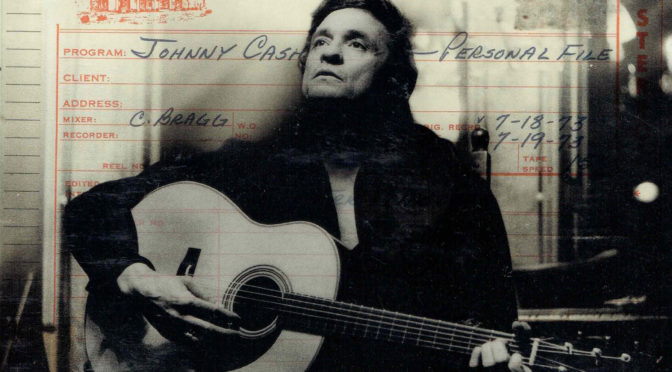
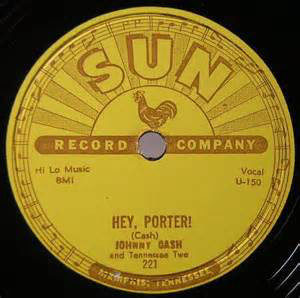
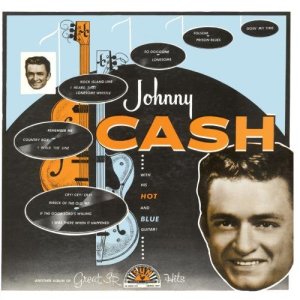
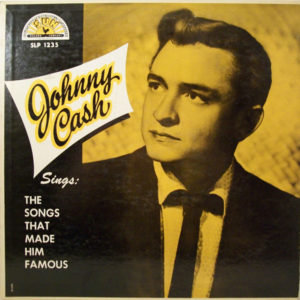
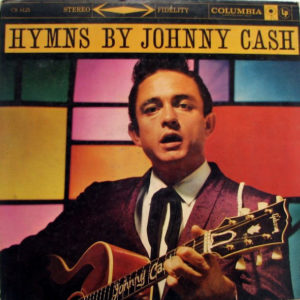
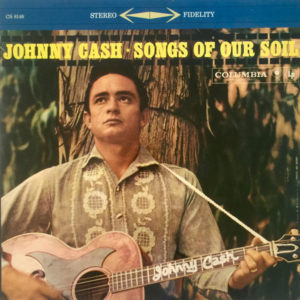
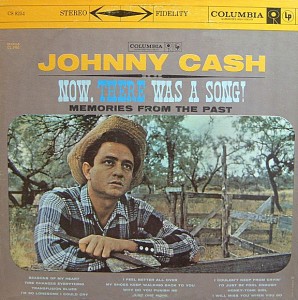
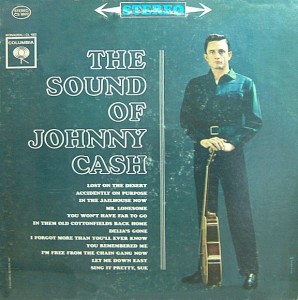
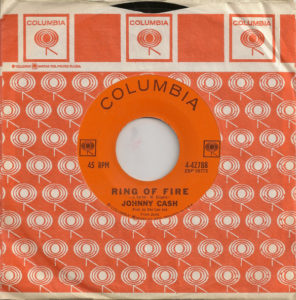
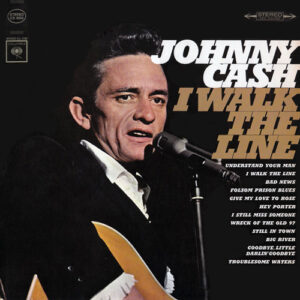
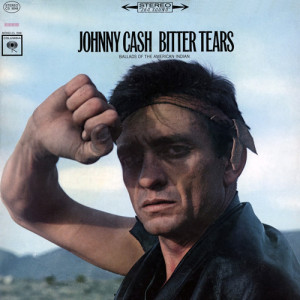
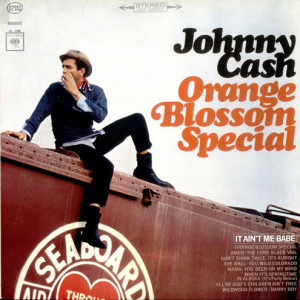
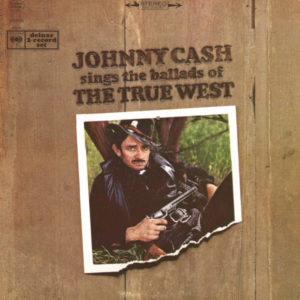
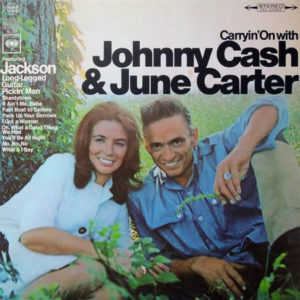
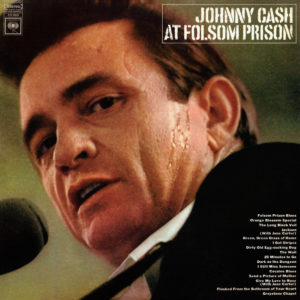
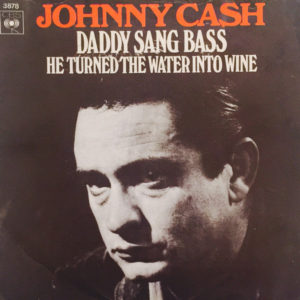
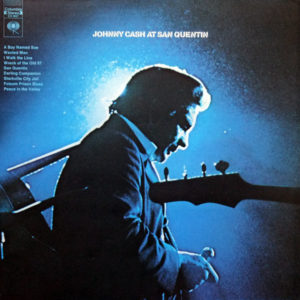
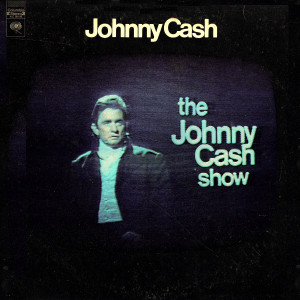
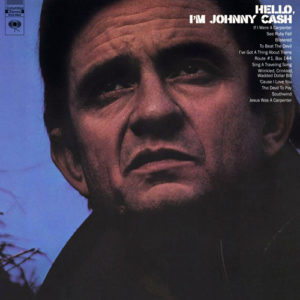
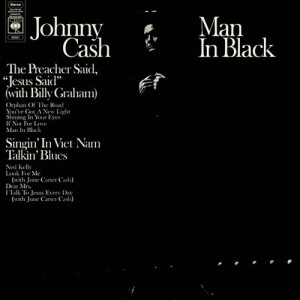
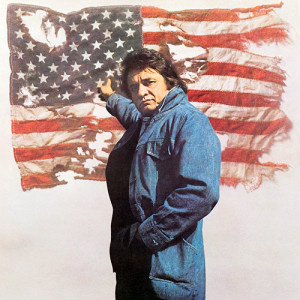
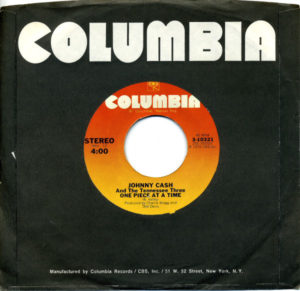
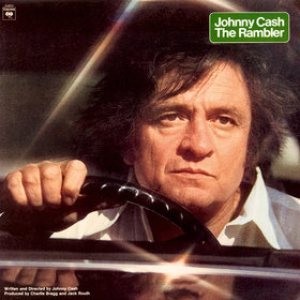
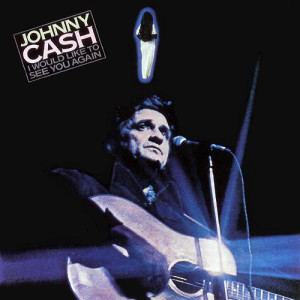
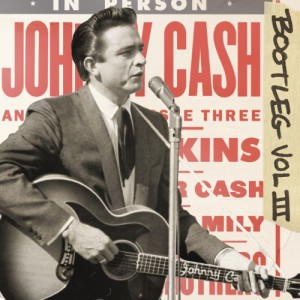
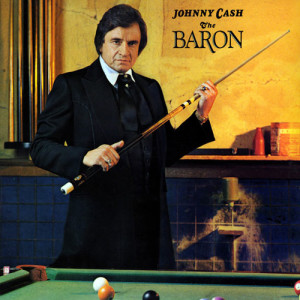
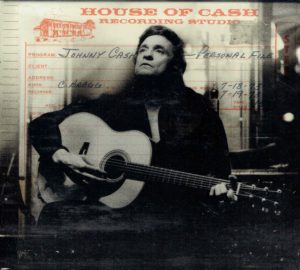
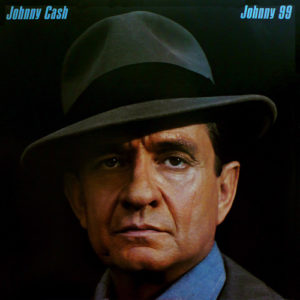
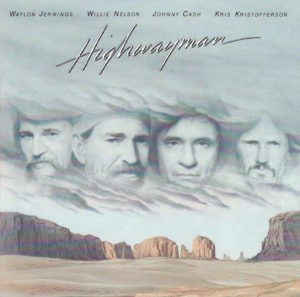
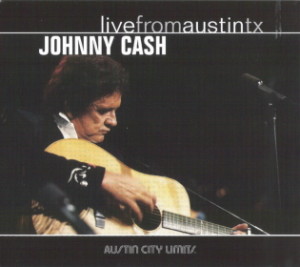
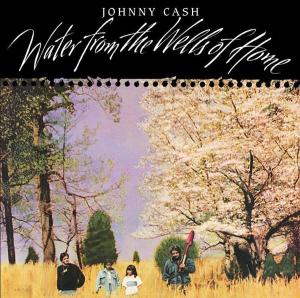
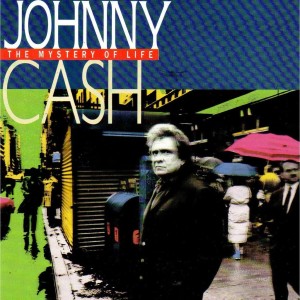
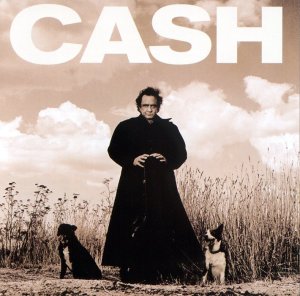
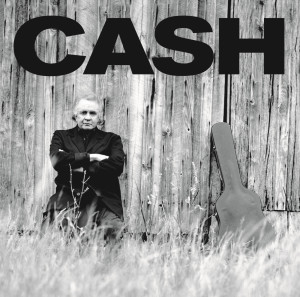
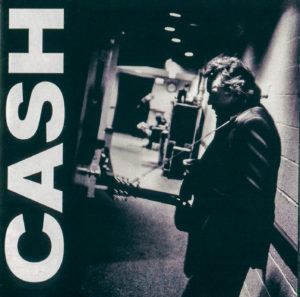
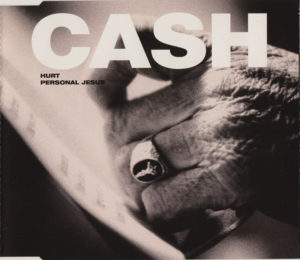
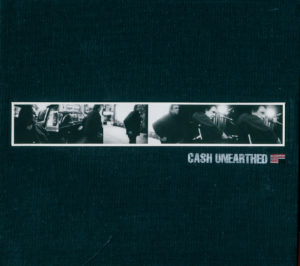
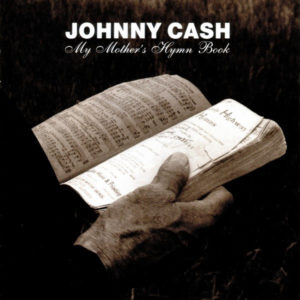
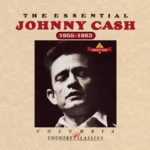 The Essential Johnny Cash 1955 -1983
The Essential Johnny Cash 1955 -1983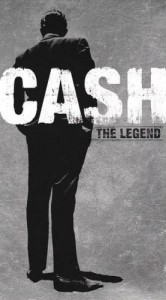 The Legend
The Legend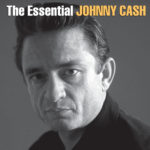 The Essential Johnny Cash
The Essential Johnny Cash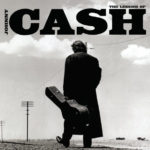 The Legend of Johnny Cash
The Legend of Johnny Cash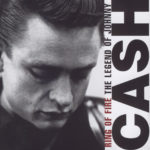 Ring of Fire: The Legend of Johnny Cash
Ring of Fire: The Legend of Johnny Cash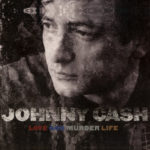 Love, God, Murder, Life
Love, God, Murder, Life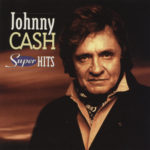 Super Hits
Super Hits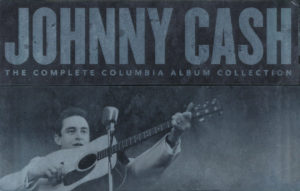 The Complete Columbia Album Collection
The Complete Columbia Album Collection